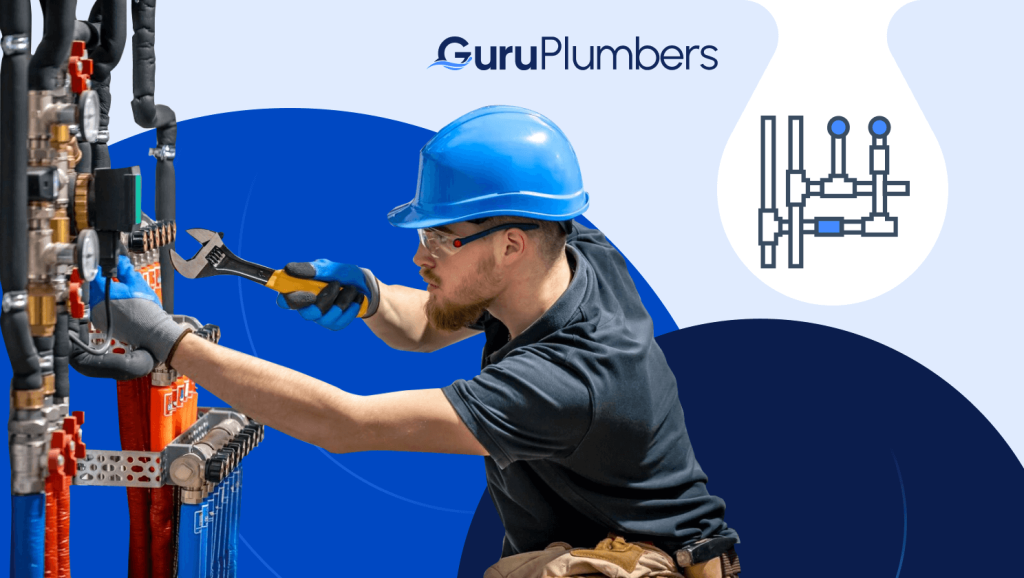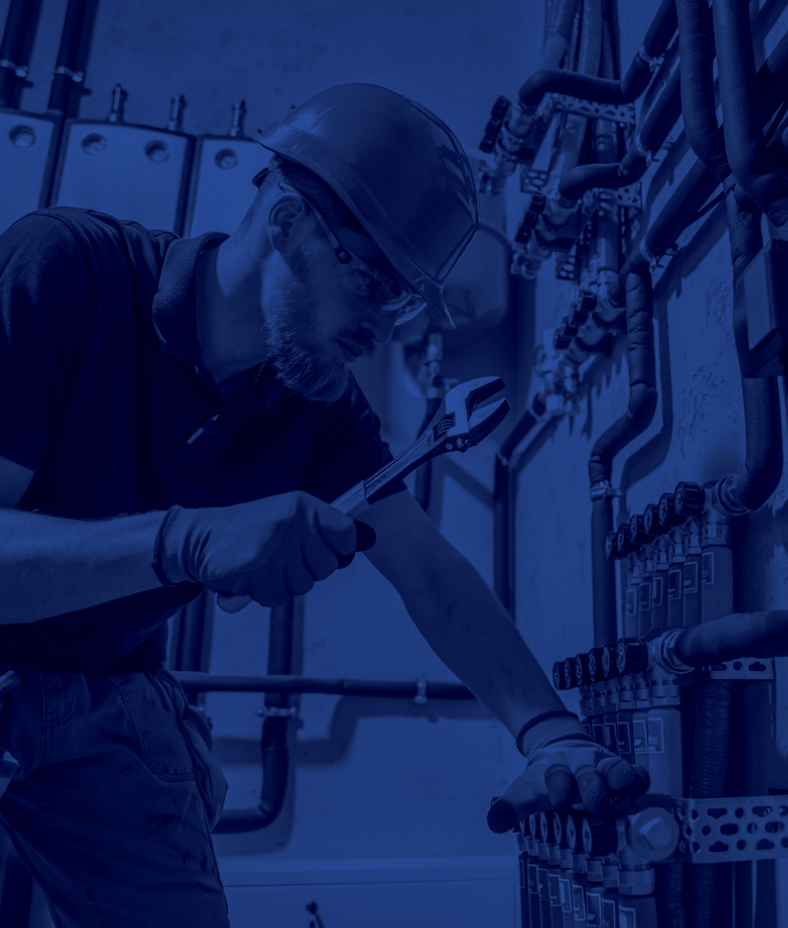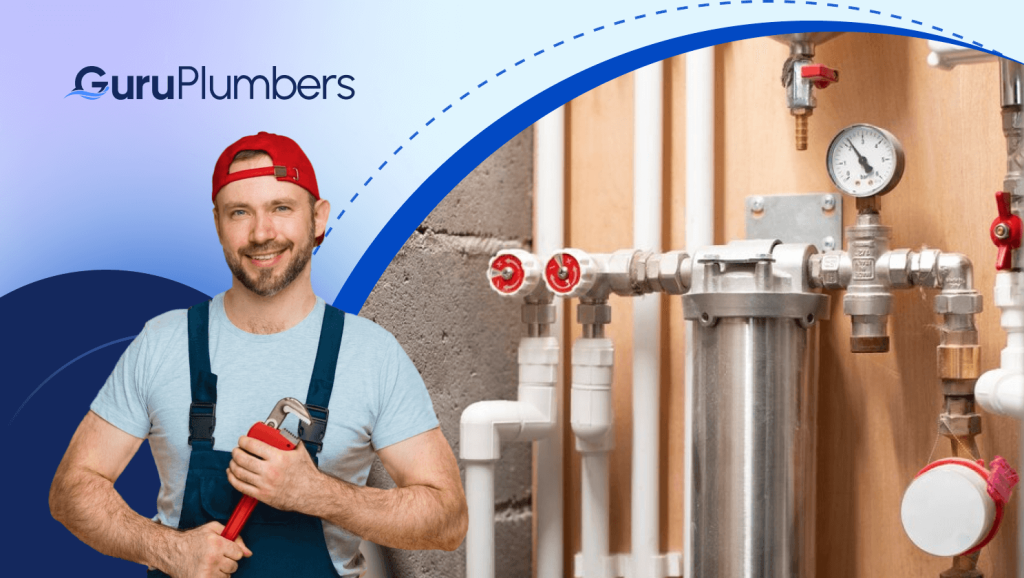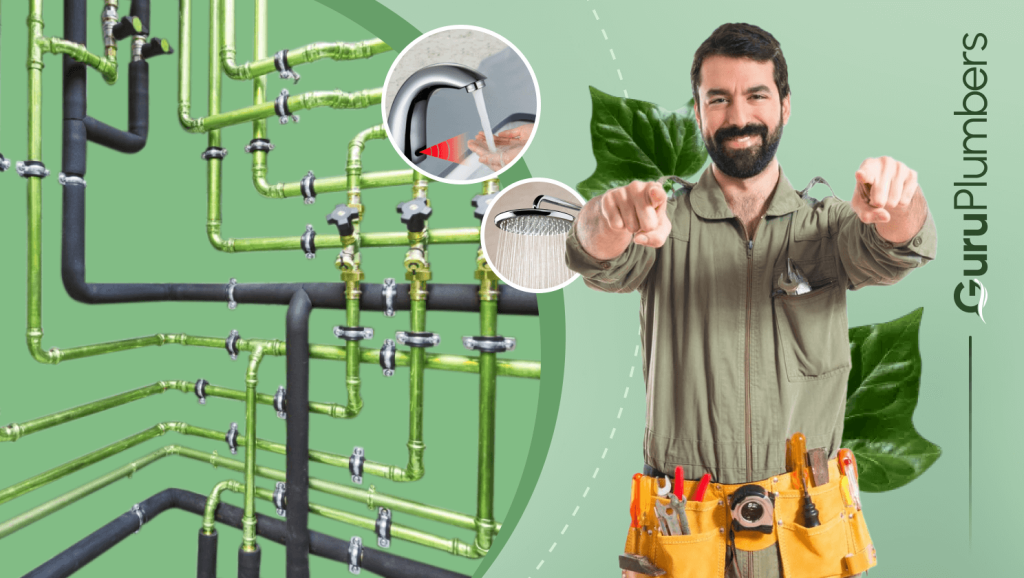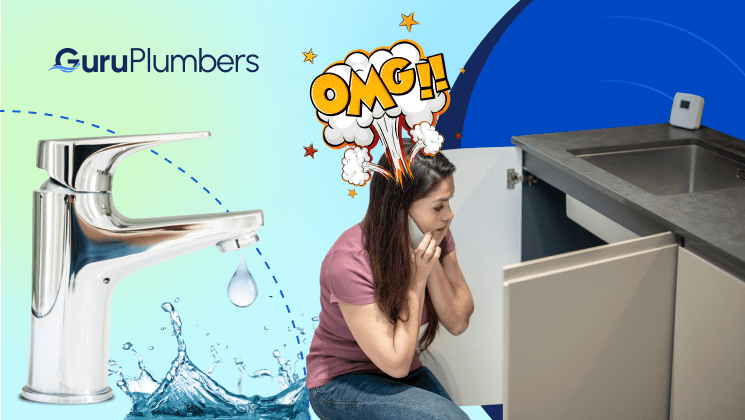In commerce, where efficiency is paramount and every minute counts, plumbing often operates behind the scenes as a crucial component of seamless business operations. This blog post explores the unique aspects and importance of commercial plumbing solutions, aimed at informing business owners and decision-makers about the value of investing in professional plumbing services.
Unique Demands of Commercial Plumbing
Commercial plumbing extends beyond traditional residential plumbing, catering specifically to the complex needs of businesses, industries, and institutions. Think of a bustling restaurant, a large office building, or a busy hotel—these environments require robust plumbing systems to handle high water usage, maintain hygiene, and ensure comfort.
Specialized Requirements
Commercial spaces have specialized plumbing needs. For instance, restaurants must manage significant quantities of grease, requiring interceptors and traps to prevent clogs and ensure sanitary conditions. Hospitals need plumbing systems that comply with stringent health regulations and support critical functions like sterilization and patient care. Industrial facilities might deal with corrosive substances necessitating specialized piping and fittings. Each of these scenarios demands a tailored approach, setting commercial plumbing apart from its residential counterpart.
Reliability: A Necessity, Not a Luxury
For commercial establishments, plumbing reliability is critical. Consider a restaurant facing a sudden water outage during peak hours or a hotel dealing with persistent leaks—such issues can lead to financial losses, damage to reputation, and legal liabilities. Reliable plumbing is essential for maintaining smooth operations and ensuring customer satisfaction.
Consequences of Plumbing Failures
Plumbing failures in commercial settings can have devastating effects. Imagine a retail store experiencing a severe leak that damages merchandise, a factory halting production due to a burst pipe, or a healthcare facility encountering sewage backup that compromises patient safety. Business operations can be disrupted by such incidents, resulting in significant financial losses and long-term reputational damage. The unique demands of commercial environments make it necessary to have reliable, robust plumbing systems.
Scale and Complexity
Commercial plumbing projects are distinct in their size and complexity. Unlike residential plumbing, which deals with individual homes or small buildings, commercial plumbing serves large office complexes, retail centers, factories, and hospitals. These projects involve extensive piping networks, high water usage, and adherence to stringent safety standards.
Engineering Challenges
The engineering challenges in commercial plumbing are significant. Large buildings require complex piping systems to ensure even water distribution and maintain pressure. High-rise buildings, for example, need booster pumps to ensure water reaches upper floors with sufficient pressure. Industrial facilities often require custom-designed systems to handle large volumes of water or other liquids used in manufacturing processes. Both design and installation of these intricate systems require expertise and precision.
Compliance and Regulations
Commercial plumbing must comply with a myriad of regulations and codes. These cover everything from pipe sizing and fixture counts to water supply and drainage. The purpose of compliance isn’t just to meet legal requirements, but to protect the health and safety of occupants and avoid significant penalties.
Regulatory Landscape
The regulatory landscape for commercial plumbing is vast and varied, encompassing local, state, and federal guidelines. Public buildings are required to have accessible restrooms under the Americans with Disabilities Act (ADA). Environmental regulations require efficient water usage and the installation of devices like backflow preventers to protect public water supplies. Health codes dictate sanitation standards, particularly in food service and healthcare settings. It takes meticulous attention to detail and a deep understanding of legal frameworks to comply with these regulations.
Durability and Reliability
Commercial plumbing systems are designed for heavy, continuous use. High-quality materials like stainless steel, copper, and PVC are selected for their durability. Advanced engineering and installation techniques, along with proactive maintenance, ensure these systems can withstand the demands of busy commercial environments.
Long-term Performance
Durability and reliability in commercial plumbing are achieved through careful material selection and superior craftsmanship. Stainless steel is resistant to corrosion and ideal for environments exposed to moisture and harsh chemicals. Copper offers excellent durability and antimicrobial properties, making it suitable for potable water lines. PVC is a cost-effective choice for waste and vent lines due to its resistance to chemical corrosion and ease of installation. Advanced installation techniques, such as proper pipe routing and secure joint fittings, further enhance the system’s longevity and performance.
Customization and Adaptability
Each commercial space has unique plumbing needs. Restaurants may require advanced grease interceptors, healthcare facilities might need antimicrobial piping, and industrial plants may need chemical-resistant pipes. Custom solutions tailored to specific business needs ensure optimal performance and compliance with industry regulations.
Technological Innovations
Technological innovations have revolutionized commercial plumbing, offering customized solutions for diverse requirements. For instance, smart plumbing systems equipped with IoT sensors can monitor water usage, detect leaks, and provide real-time alerts to facility managers. Touchless fixtures and automatic faucets improve hygiene and reduce water consumption in public restrooms. Greywater recycling systems enable businesses to reuse water for non-potable applications, enhancing sustainability and reducing utility costs. These technologies enable businesses to tailor their plumbing systems to their specific operational needs, maximizing efficiency and effectiveness.
Efficiency and Cost-effectiveness
Efficient plumbing systems reduce operational costs and environmental impact. By using water-efficient fixtures, energy-efficient technologies, and proactive maintenance, businesses can significantly cut water and energy bills. These savings, coupled with enhanced sustainability, improve overall competitiveness.
Proactive Maintenance
Proactive maintenance is a key component of efficient and cost-effective commercial plumbing. Regular inspections, cleaning, and servicing of plumbing fixtures and equipment prevent minor issues from escalating into major problems. The maintenance of plumbing systems avoids costly emergency repairs and operational downtime, as well as extending the lifespan of plumbing systems. By addressing potential problems early, businesses can maintain optimal performance and avoid unexpected expenses.
Emergency Response and Support
In commercial settings, plumbing emergencies can have severe repercussions. Reputable commercial plumbing providers offer 24/7 support to quickly address issues like burst pipes or sewage backups, minimizing downtime and preventing further damage. Having a reliable plumbing partner ensures businesses can swiftly return to normal operations.
Rapid Response
A rapid response to plumbing emergencies is crucial in commercial settings. Time is of the essence when dealing with issues like leaks, blockages, or equipment failures. A delayed response can exacerbate the problem, leading to more extensive damage and longer downtime. Reputable commercial plumbing providers are equipped with the expertise, tools, and resources to handle emergencies promptly and efficiently. It enables them to minimize downtime and reduce the impact on business operations by diagnosing and resolving issues as quickly as possible.
Sustainability Initiatives
Businesses across all industries are increasingly focusing on sustainability. Commercial plumbing solutions can play a significant role in supporting these initiatives by incorporating water and energy-efficient technologies, promoting conservation, and reducing environmental impact.
Water Conservation
The sustainability of commercial plumbing depends on water conservation. Installing low-flow fixtures, such as toilets, faucets, and urinals, can significantly reduce water usage without compromising performance. Implementing greywater recycling systems allows businesses to reuse water from sinks, showers, and laundry for non-potable applications like irrigation and toilet flushing. Further reducing dependence on municipal water supplies can be achieved by integrating rainwater harvesting systems.
Energy Efficiency
Energy efficiency in commercial plumbing is achieved through advanced technologies and smart design. With high-efficiency water heaters, such as tankless models, hot water is available on demand without the waste of energy associated with traditional storage tanks. Insulated piping reduces heat loss, maintaining water temperature and reducing the energy required for reheating. Recirculation pumps ensure hot water is readily available at fixtures, minimizing water wastage from running taps. By optimizing energy use, businesses can reduce their carbon footprint and achieve significant cost savings.
Health and Safety Considerations
Health and safety are paramount in commercial plumbing, particularly in sectors like healthcare, food service, and hospitality. Ensuring plumbing systems meet rigorous standards is essential for protecting occupants and maintaining compliance with regulations.
Sanitation and Hygiene
Sanitation and hygiene are critical in environments such as hospitals, restaurants, and hotels. Plumbing systems must ensure a reliable supply of clean water and effective waste disposal. Antimicrobial piping materials and touchless fixtures can help minimize the risk of contamination and infection. Regular cleaning and maintenance of plumbing components, such as grease traps and drain lines, prevent blockages and maintain sanitary conditions. Implementing water treatment systems can also enhance water quality, removing contaminants and ensuring safe, potable water for occupants.
Fire Protection Systems
Fire protection is another vital aspect of commercial plumbing. Standpipes and sprinkler systems are essential for protecting occupants in the event and buildings of a fire. Fire safety regulations require these systems to be designed, installed, and maintained in compliance with them. Regular testing and inspections ensure they remain functional and effective. In addition to fire sprinklers, backflow prevention devices are crucial for preventing contamination of the potable water supply in case of a backflow event during a fire.
Collaboration and Project Management
Successful commercial plumbing projects require effective collaboration and project management. As part of the entire design and planning process, as well as the installation and maintenance, a coordinated approach ensures seamless execution and optimal results.
Stakeholder Engagement
Engaging all stakeholders—architects, engineers, contractors, and facility managers—is essential for a successful commercial plumbing project. Clear communication and collaboration ensure that everyone is aligned on project goals, timelines, and expectations. Regular meetings and updates keep the project on track and address any issues promptly. Plumbing systems can be integrated with other building components more efficiently and effectively when stakeholders are involved early in the planning process.
Integrated Solutions
Integrated solutions streamline the design and installation of commercial plumbing systems. By leveraging Building Information Modeling (BIM) and other advanced planning tools, project teams can create detailed, accurate models of plumbing systems that account for all building elements and constraints. In addition to reducing conflicts, rework, and enhancing the overall efficiency of construction, this holistic approach ensures a timely and cost-effective project. Integrated solutions also facilitate coordination with other building systems, such as HVAC, electrical, and fire protection, ensuring seamless operation and maintenance.
Final Words
Commercial plumbing solutions are vital for businesses, providing the necessary infrastructure for daily operations while ensuring compliance, efficiency, and reliability. By investing in professional commercial plumbing services, businesses can safeguard their operations, minimize risks, and maintain continuity in the face of plumbing challenges.
Long-term Success
Prioritizing quality and expertise in plumbing solutions is crucial for long-term success and resilience in today’s competitive landscape. Reliable plumbing systems enable businesses to focus on their core operations without worrying about disruptions or failures. Efficient, sustainable plumbing solutions reduce operational costs and environmental impact, enhancing the overall competitiveness and reputation of businesses.
Choosing the Right Partner
Choosing the right plumbing partner is critical for achieving these benefits. Professional commercial plumbers provide everything from design and installation to maintenance and emergency services. By combining their knowledge and experience, they provide reliable, efficient, and compliant plumbing solutions tailored to each business’ needs. Investing in a trusted provider can ensure a plumbing infrastructure’s long-term success and resilience, ultimately safeguarding their reputations and operations.
